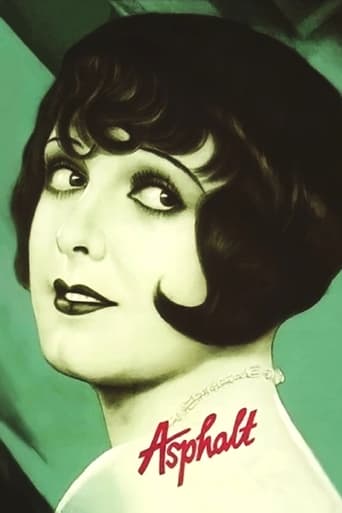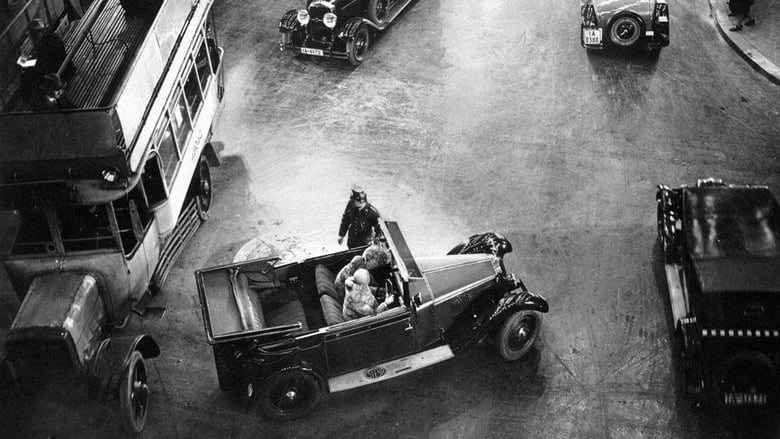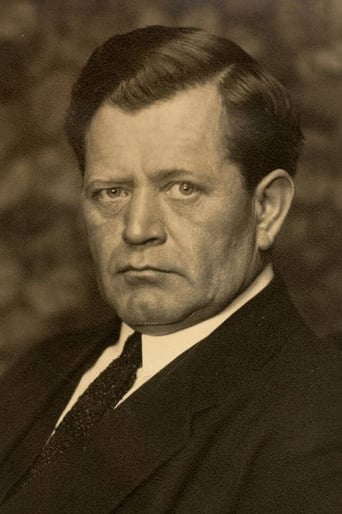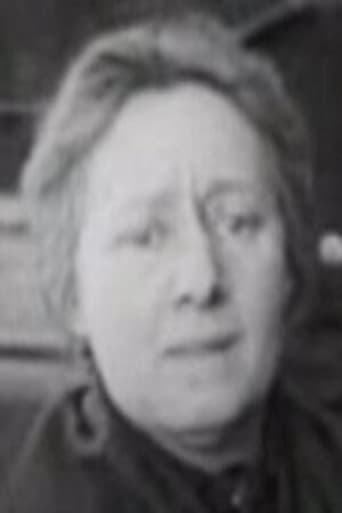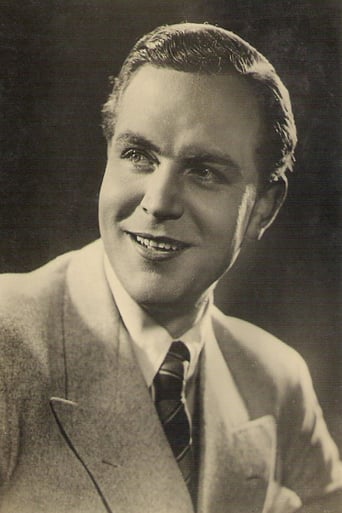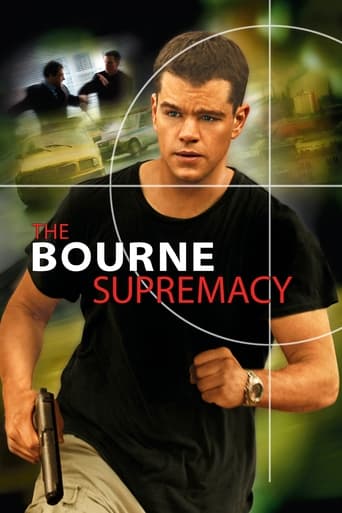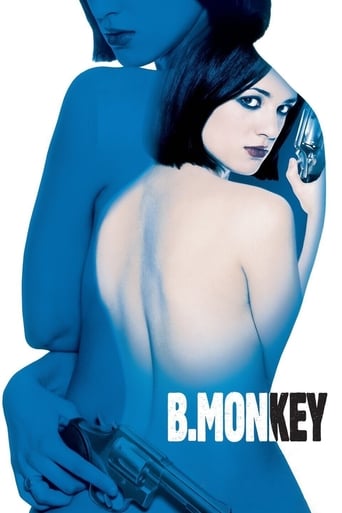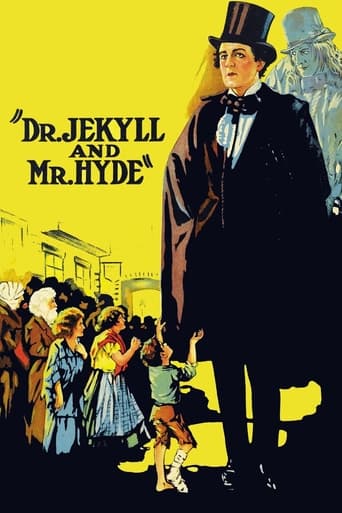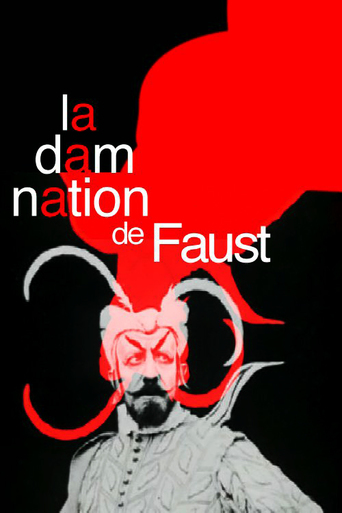Asphalt (1929)
One of the last great German Expressionist films of the silent era, Joe May’s Asphalt is a love story set in the traffic-strewn Berlin of the late 1920s. Starring the delectable Betty Amann in her most famous leading role, Asphalt is a luxuriously produced UFA classic where tragic liaisons and fatal encounters are shaped alongside the constant roar of traffic.
Watch Trailer
Cast


Similar titles
Reviews
good back-story, and good acting
Excellent and certainly provocative... If nothing else, the film is a real conversation starter.
The movie's neither hopeful in contrived ways, nor hopeless in different contrived ways. Somehow it manages to be wonderful
Through painfully honest and emotional moments, the movie becomes irresistibly relatable
"Asphalt" is a German 90-minute silent movie in black-and-white. This was made in 1929 and at that time, it was already the final years for silent films as sound movies took over a little later. And this film here was unfortunately also no great farewell to the old days. This film brings really nothing new to the table. It is the old femme-fatale story that was so popular during the days of silent film and her male equivalent is a police officer this time, which obviously result in quite a few issues in terms of breaking the law or not. Lead actress Betty Amann sure looks the part and it may have been her performance here that let her work with Hitchcock not much later. Yet, that part was nowhere near as big as her role here, so this stays her career-defining performance. She looks a lot like Louise Brooks by the way and I wonder why femme-fatales were basically always dark-haired in film during that era.The writer and director here is Joe May, very simple name, but he is not really known today anymore and this one here may also be his most famous work. Sadly, I do think that it was his script that was the reason why I did not find this a particularly great watch. The actors were okay. The film also could have needed more intertitles, but that's true for 95% of the old films from the silent era. So overall, not a failure, but also not a particularly good watch and I found little to none memorable moments in this movie. I cannot recommend. Sorry, I have to give it a thumbs down.
I've been watching the proto-noirs of this era and this is the first film which I would say fits smack dab in the subjective category of pure noir. A grimy city, stark photography, a femme fatale, an unapologetic somber ending, and even a wrongly-accused man. At the close of the silent era, this UFA production with all the big names in the German film industry made what Hollywood was doing look amateurish. I loved the scenes early on showing the traffic in Berlin, Opel 4/16s trying to compete with double-decker buses and our hapless hero the traffic cop stuck in the middle of the chaos. I could have done with a little more help from the inter-titles, many utterances went unwritten. But then again, words just get in the way anyway.
In Berlin, the dedicated traffic officer Albert Holk (Gustav Fröhlich) is a young man that lives with his parents. When the elegant and charming Else Kramer (Betty Amann) shoplifts a diamond in the Bergen Jewelry, the officer arrests her despite the request of the owner to release the youngster after retrieving the stone. They take a cab to the police station and Else first cries and then she unsuccessfully tries to seduce the uncorrupted officer. When they are in front of the precinct, Else asks Albert to go to her house first to get her documents. The reluctant officer finally accepts her request to go to her apartment and once there, she seduces him. On the next day, Albert feels guilty for failing on his duty. Else decides to return his documents that she had stolen in the previous night with a box of cigars. When the carrier delivers the envelope to Albert, he goes to Else's apartment offended with the bribe. But sooner he succumbs to the gorgeous lady and proposes her. Else questions the future of a policeman with a thief and shows that she stole the diamond for greed and not for need. Meanwhile, Else's lover Konsul Langen (Hans Adalbert Schlettow) returns from Paris where he had heisted the safe of a bank and finds Albert and Else together in her apartment. When Konsul pushes Else on the floor, Albert defends her and himself and their fight lead to a tragic conclusion. "Asphalt" is a dramatic German silent film and an early film-noir. The gorgeous dark-haired Betty Amann is one of the most expressive actresses I have ever seen, and her eyes are amazing in the close-ups. The sequence in the taxi with the tears in her eyes is fantastic. Her performance is remarkable and her character certainly is one of the first femme fatales of the cinema history. The dilemma of Albert Holk, shared between his duty and the seductive woman, is one of the best moments of this film. This film registers the streets of Berlin in the late 20's with a great traffic of buses and automobiles and crowded streets. The music score of this highly recommended DVD is also awesome. My vote is eight.Title (Brazil): "Asfalto" ("Asphalt")
Outstanding German silent era crime drama; an early film noir about a young traffic officer who gets involved with a femme fatale he has just arrested for stealing a diamond from a jeweler's shop. This spit-curled, dark-haired beauty attempts to use tears, tricks, Cognac, a pillow-laden couch proportioned like a king-sized bed, and finally a black-laced bodysuit/nightie to seduce our officer into letting her off. These two soon become emotionally involved with each other, but the officer is feeling guilt over shirking his duty to arrest her.The photography in this film is really excellent - the film as a whole is very visual, with lots of facial close-ups, softly filtered lighting along with shadowy rooms and hallways, and an interesting montage at the beginning of the asphalt streets of Berlin and it's fast moving crowds of people and traffic, all shown with interesting overlapped and angled photography. The actors all give excellent, emotional performances. The actress, Betty Amann, who portrays the thief is especially good here, seducing both our officer and the viewer with just her eyes, showing a great range of emotion in close-up. The print on the DVD of this looks good, the orchestral score is really great and suits this to a tea. I have seen many, many silent films and I would certainly count this one among the best I've seen.

